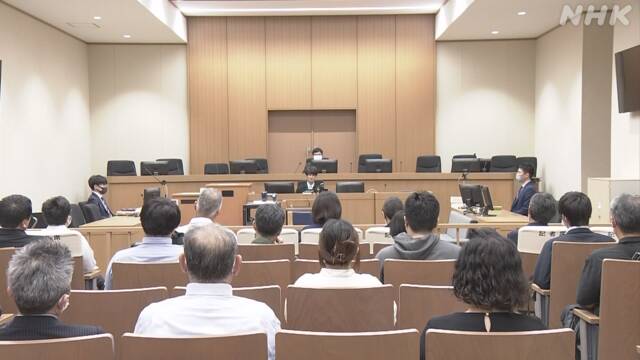Mindan=The Tokushima District Court sentenced the defendant to a suspended sentence for sending a threatening letter to the Tokushima Prefecture office of the Korean National Association in Japan.
The ruling did not use the term "hate crime" used by the prosecution, but pointed out that it was "a way of thinking that strongly suggests discrimination and is riddled with prejudice."
Noriaki Iwasa, a 40-year-old university student in Tokushima City, was accused of intimidation last September for sending a threatening message to the office of a Mindan's office in Komatsushima City, Tokushima Prefecture, stating that if he continued his anti-Japan policy, he would be purified with live ammunition.
At the trial, the prosecution used the word "hate crime," which means a crime based on discrimination or prejudice, to point out that it was a 'hate crime' that had discriminatory feelings against the Korean government and Koreans and caused one-sided anger.
In his ruling on March 9, Tokushima District Court Judge Hirotoshi Hosobao did not use the word "hate crime," but sentenced him to 31 months in prison and four years of probation, pointing out that "it strongly shows a sense of discrimination and deserves severe criticism for its prejudiced ideas."
Finally, the judge told the defendant, "It is not permissible to unilaterally exclude people who do not agree with your wishes, it is the same everywhere in the world.
Mindan: "The judges and prosecutors did their best."
Kang Seung-moon, head of the Tokushima Prefecture regional headquarters of the victims, said at a press conference after the trial, "The word hate crime did not come up, but I think the verdict said what we wanted to say. I was talking.
Lee Kun-chul, chairman of the Mindan's Central Human Rights Protection Committee, said, "I think the judges and prosecutors did their best to judge only under existing laws, but we felt that we needed to seek a law to regulate hate crimes because the situation will continue to be that victims cannot be protected unless deterrence is strengthened."
Expert "Certified as a Substantially Hate Crime"
Yasuko Momooka, a lawyer who is familiar with hate crime issues, praised the ruling, saying, "It can be said that it is effectively a hate crime because it recognizes that the crime is based on discriminatory motives and causes strong fear to the victim.
On the other hand, he said, "Since there is no law regulating hate crimes in Japan, the decision is left to each judge.
What is a "hate crime"?
"Hate crime" means a crime based on prejudice or discrimination.
Japan doesn't have a law governing hate crimes, but there have been incidents that appear to be based on discrimination and prejudice.
In August, in the Utoro district of Uji City, Kyoto Prefecture, where many Koreans in Japan live, a warehouse was set on fire and seven houses and other buildings were completely and partially burned down, and the defendant, who was accused of arson and other crimes, said at the trial, "I had hostile feelings toward Koreans."
In addition, it has been pointed out that discrimination and prejudice are not only due to race and ethnicity, but also to disability.
Yasuko Shirooka, a lawyer who is familiar with hate crime issues, pointed out that the murder of 8 residents at a facility for the mentally disabled in Sagamihara City seven years ago may also constitute a hate crime on the grounds of disability.
Abroad, some countries have laws that regulate hate crimes.
In the United States, hate crimes are punished heavier than usual.
In Germany, if racist motives are recognized, the UK increases penalties for crimes committed on the basis of race, religion, disability, etc.

